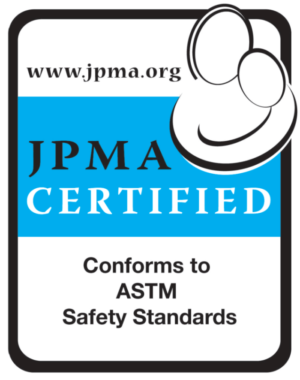Regular immunizations protect your baby against many dangerous childhood diseases, and now that we are getting into the flu season, it’s a perfect time to talk about it. Here’s what you should know about your baby’s vaccines.
Early childhood immunizations are an important safeguard against serious illnesses for your baby. While it may be difficult to hear your baby cry when getting a shot, remember the pain only lasts a few seconds, but the benefits will last a lifetime. Here is a brief rundown of each of the vaccines your baby needs:
- Hepatitis B vaccine
Hepatitis B is an infection of the liver that’s caused by a virus and can result in liver damage or failure. Some babies can develop Hepatitis B if their mothers are infected with it before or during pregnancy. If mom tests positive for Hepatitis B or her status is unknown, the baby may be given the vaccine in the hospital right after birth. If the baby doesn’t receive the vaccine in the hospital, this vaccination should be given within the first 2 months. Two additional doses also are recommended within the baby’s first year. - Diphtheria, Tetanus and Pertussis (DTaP)
This vaccine protects against three diseases — diphtheria, tetanus and pertussis (whooping cough):- Diphtheria is a serious infectious disease caused by bacteria that produce toxins which inflame the nervous system and heart and can result in heart failure and paralysis.
- Tetanus results from bacteria that grow in wounds and that produce a toxin which affects the nervous system and causes muscle spasms and paralysis, especially in the jaw area. It’s also called lockjaw.
- Pertussis, or whooping cough, another infectious disease caused by bacteria, is especially dangerous for babies under the age of 1. It’s most well-known symptom is a debilitating racking cough.
- Haemophilus Influenzae Type B (HIB)
Haemophilus Influenzae Type B isn’t the viral infection that everybody calls the flu. Instead, it’s a fast-moving bacterial infection that can cause your baby to have ear and bronchial infections. HIB also can lead to meningitis in children under the age of 2, so it is important that you protect your child with three doses of the HIB vaccine during the first year — at age 2 months, 4 months and 6 months. Experts also recommend that a fourth dose be given before your child’s second birthday. - Polio
Polio, short for poliomyelitis, is a serious viral disease that starts with a fever and can lead to paralysis, muscle atrophy and permanent disability. In its most severe forms, polio can cause death. Polio vaccine comes in two forms, IPV (inactivated polio vaccine) which is given by injection and OPV (oral polio vaccine) which is given by mouth. The American Academy of Pediatrics recommends giving the vaccine at 2 months, 4 months, 12–18 months, and between 4–6 years of age. You and your baby’s doctor can decide whether a schedule of all-OPV, all-IPV or a combination of both forms is best for your baby. - Measles, Mumps and Rubella (MMR)
This vaccine provides coverage for three diseases in a single shot — measles, mumps and rubella (or German measles):- Measles is a viral infection that causes distinctive red spots and is characterized by cold-like symptoms and a high fever.
- Mumps is an infectious viral disease that results in swelling of the parotid gland that’s just in front of the ear and the salivary glands. The swelling can occur on the sides of one or both cheeks. Mumps usually is accompanied by a fever and pain when the patient opens his mouth or eats.
- Rubella, or German measles, is similar to measles in that it’s a viral infection that results in a fever, swollen glands and a rash.
The first MMR vaccine is usually given when the baby is between 12-15 months and very rarely has any serious side effects. The second shot (booster) is recommended between 4–6 years of age. Your baby, however, may be more sleepy than usual and have a mild rash, slight fever, or slight swelling in the neck or diaper area.
- Varicella
This vaccine protects against chicken pox, a viral infection which is highly contagious and results in a blister-like rash that’s very itchy. The American Academy of Pediatrics recommends that all children receive the varicella vaccine between the ages of 12–18 months. A second dose also is recommended at between 11–12 years of age.
While many of these shots have to be given at hospitals, flu shots for adults can be received at any Walgreens, Rite Aid and many others. They usually only cost between $25-30.



